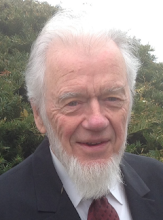We are all familiar with the term “whitewashing.” The verb whitewash used in the figurative sense means "to cover up, conceal, give a false appearance of cleanness to," and it was used with that meaning by the middle of the 18th century
But what about “greenwashing”? What does that word mean and why should we beware of what it designates?
Greenwashing
is defined as “the act or practice of making a product, policy, activity,
etc. appear to be more environmentally friendly or less environmentally
damaging than it really is.” This word was first used around 1990.*1
Since it
is a form of deception, we must be aware of and beware of greenwashing. This is
one of the many important emphases in a new book (in English) that I have read
and written a review of this month.*2
The book
title is Slow Down: The Degrowth Manifesto, and the author’s name is
given as Kōhei Saitō. The English translation was issued just last month, but
the original Japanese edition was published in 2020, and its (translated) title
is “Capital” in the Anthropocene.*3
Saitō (b. 1987)
was born in Japan but was a university student in the U.S. from 2005 to 2009
and then in Germany, where he earned a Ph.D. degree in 2015. After a few years teaching
at a university in Osaka, in 2022 he became an associate professor of
philosophy at the University of Tokyo.
“Ecology Is the Opiate of the Masses!” is the attention-grabbing title of the Introduction in Saitō’s
book. He explains,
Long ago, Marx characterized
religion as “the opiate of the masses” because he saw it as offering temporary
relief from the painful reality brought about by capitalism. SDGs [Sustainable
Development Goals] are none other than a contemporary version of the same
“opiate” (xvii-xviii).
Before that, though, in his preface to the English edition,
Saitō asserts that “greenwashing is everywhere,” and he describes that concept
as “an optimistic belief in green technologies and green growth” and says that
it “may be nothing more than a ploy to buy time for capitalism” (xi).
Saitō’s main criticism is not directed toward the global
warming deniers, whom he rarely mentions, but toward those who want to save the
environment. Thus, his second chapter mainly disparages proponents of the Green
New Deal (GND)—as I was when I made a blog post affirming
the GND in Feb. 2019.
He asks, “Can a Green New Deal really save us,” and he answers
his rhetorical question in the negative. Why? Because those espousing the Green
New Deal emphasize “green growth,” which Saitō thinks is impossible. And now I
think he is probably right and my previous support of the GND was wrong.
Politicians always have to be concerned about the next
election, so affirming “green growth” is a way of appealing to those who want
to combat the dangers of climate change as well as to continue receiving the
support of “big business.”
But Saitō’s main point throughout his book is clearly
stated in the Introduction: capitalism is the “root cause” of the current
climate crisis (p. xix). Greenwashing is used to protect capitalism by making
people think that the GND and the like will alleviate the ever-increasing
environmental crisis.
So,
why should we beware of greenwashing? For the
simple reason that the New Green Deal and other similar plans for saving the
planet from global warming are deceitful, for they propose that that can be
done with capitalism kept intact. Still, the NGD is certainly better than
maintaining the status quo.
Saitō’s analysis of the climate/ecological problem is most
probably accurate. (You’ll have to read Saitō’s book or at least a/my review of
it to understand what degrowth communism means and why he thinks that it is the
only viable solution to the current climate crisis.)
But the
solution he posits, a worldwide shift from capitalism to degrowth communism, is
absolutely unrealistic. Even Saitō says, “The Earth will become uninhabitable
for humankind before capitalism collapses” (p. 26).
But,
sadly, with the MAGA Republicans refusing to provide additional funding for
Ukraine and candidate Trump saying he would encourage Russia to “do
whatever the hell they want” if it attacked a NATO country that didn’t pay enough for defense, perhaps nuclear warfare will
bring the end of the world as we know it before the ecological crisis does.
_____
*1
From the
Merriam-Webster online dictionary.
*2 The review was written for The
Englewood Review of Books, which provided me with a free copy of Saitō’s thought-provoking
book. My review will appear on ERB’s website next month, but you can read
(here) the review article (of around 1,200 words) that I submitted to
Englewood.
*3 In the first printing of the
English translation, all references to global temperatures should be
disregarded, for they are all incorrect. I was able to exchange emails with
author Saitō about this matter, and he said it was “a stupid conversion error”
that has already been fixed on the Kindle version and will be corrected in the subsequent
printings of the published book.
Note: Here is the link to a
YouTube video of Saitō explaining his understanding of degrowth communism. That
video has had nearly 10,000 views, and there are other, and longer, videos by Saitō
on YouTube.






